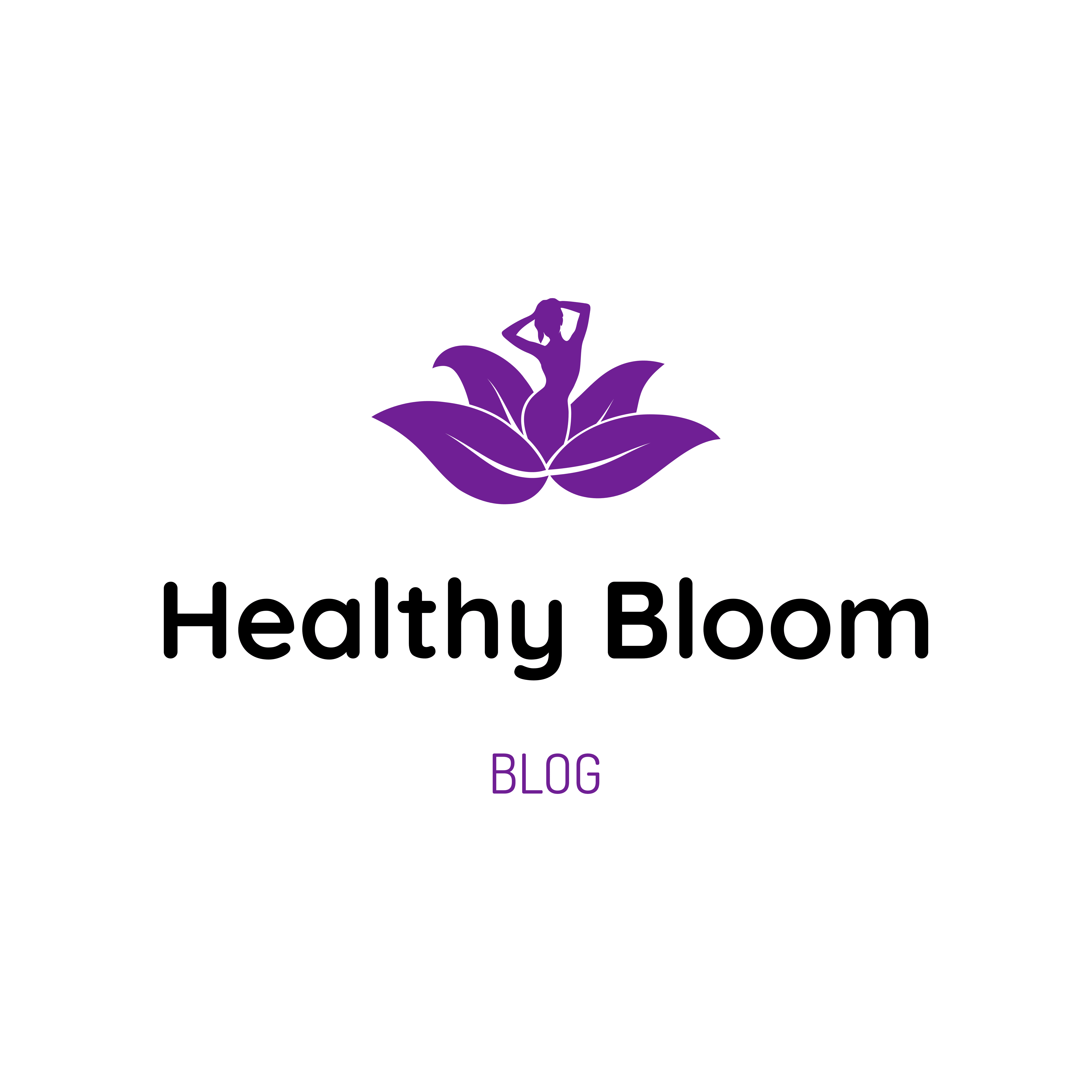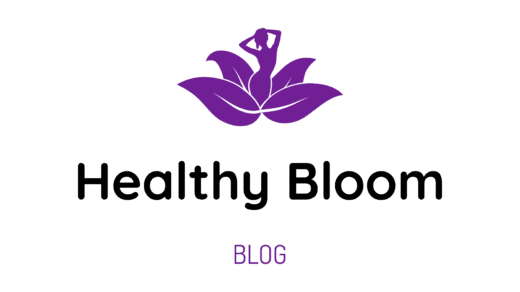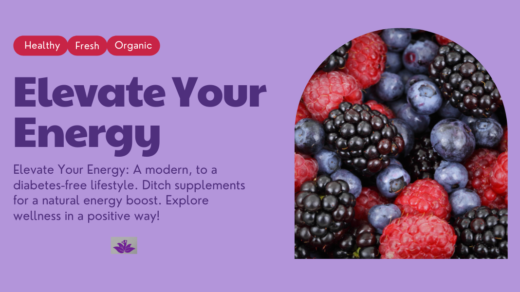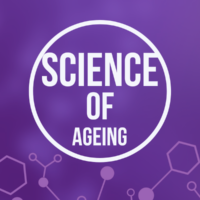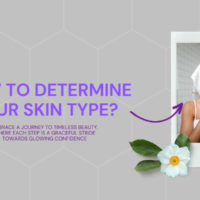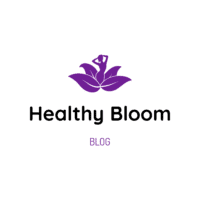
As we journey through life, our skin undergoes a natural aging process influenced by various factors. Understanding the science behind skin aging is essential for developing an effective skincare routine. In this article, we delve into the key factors that contribute to skin aging and provide insights on how to combat them. From lifestyle choices to environmental influences, we explore it all. Get ready to uncover the secrets to youthful and radiant skin!
Table of Contents:
- The Role of Intrinsic Factors in Skin Aging
- Genetic Predisposition: Unravelling the DNA Influence on Aging
- Hormonal Changes: Exploring the Impact of Hormones on Skin Health
- Metabolic Processes: How Cellular Functions Affect Aging
- The Impact of Extrinsic Factors on Skin Aging
- UV Radiation: The Sun’s Role in Premature Aging
- Environmental Pollutants: Unveiling the Detrimental Effects on Skin
- Lifestyle Habits: How Your Choices Influence Aging
- Protecting Your Skin: Effective Anti-Aging Strategies
- Sun Protection: Shielding Your Skin from Harmful UV Rays
- Skincare Ingredients: Harnessing the Power of Anti-Aging Compounds
- Healthy Lifestyle Choices: Nurturing Your Skin from Within
- Tailoring Anti-Aging Strategies to Individual Skin Types
- Affordable Anti-Aging Products for Dry Skin
- Budget-Friendly Solutions for Oily and Acne-Prone Skin
- Sensitive Skin Care Recommendations
- Embracing a Holistic Approach to Beauty and Self-Care
- The Power of Self-Care: Nurturing Your Mind, Body, and Skin
- Embracing Your Unique Beauty
The aging of our skin is a complex process influenced by both intrinsic and extrinsic factors. Intrinsic factors are the natural processes that occur within our bodies, such as genetic predisposition, hormonal changes, and metabolic processes. Extrinsic factors, on the other hand, are external factors that impact our skin, including sun exposure, environmental pollutants, and lifestyle habits. By understanding and addressing these factors, we can optimize our skincare routine and promote healthier, more youthful-looking skin.
The Role of Intrinsic Factors in Skin Aging
- Genetic Predisposition: Unravelling the DNA Influence on Aging
Our genetic makeup plays a significant role in how our skin ages. Certain genes can impact collagen production, moisture retention, and antioxidant defence mechanisms. Understanding your genetic predisposition can help you better comprehend how your skin might age and enable you to implement targeted skincare strategies.
While we cannot alter our genes, we can take steps to mitigate their effects on aging. By adopting a proactive skincare routine and lifestyle habits, you can optimize your skin’s health and minimize the visible signs of aging. Look for products containing ingredients such as retinol, peptides, and antioxidants, which can help support collagen production and protect against oxidative stress.
- Hormonal Changes: Exploring the Impact of Hormones on Skin Health
Hormonal fluctuations that occur naturally with age, pregnancy, or menopause can profoundly influence the condition of our skin. Estragon, for example, promotes collagen and elastin production, contributing to a more youthful appearance. As estragon levels decline, skin may become drier, thinner, and less elastic.
To counteract the effects of hormonal changes on the skin, it is essential to adapt your skincare routine accordingly. Incorporate hydrating products that nourish the skin, such as moisturizers with hyaluronic acid, and consider using hormone-balancing ingredients like phytoestrogens found in certain plant extracts. Consulting with a dermatologist or healthcare professional can provide further guidance on managing hormone-related skin concerns.
- Metabolic Processes: How Cellular Functions Affect Aging
The natural metabolic processes within our bodies can impact the aging of our skin. As we age, cellular turnover slows down, leading to a build-up of dead skin cells and a dull complexion. Additionally, the production of collagen and elastin decreases, resulting in the loss of skin elasticity and the formation of fine lines and wrinkles.
To support optimal cellular function and counteract the effects of slowed metabolism, exfoliation and stimulation of collagen production are key. Regular exfoliation using gentle chemical or physical exfoliants can remove dead skin cells, revealing a fresher and more youthful appearance. Incorporating skincare products with ingredients like vitamin C, retinoids, and peptides can also help stimulate collagen production and promote skin renewal.
Understanding the intrinsic factors involved in skin aging allows us to address them proactively. While we cannot completely halt the aging process, we can implement targeted skincare strategies to minimize the effects of genetic predisposition, hormonal changes, and metabolic processes. By adopting a comprehensive approach to skincare and utilizing effective ingredients, we can promote healthier, more resilient skin that ages gracefully.
The Impact of Extrinsic Factors on Skin Aging
- UV Radiation: The Sun’s Role in Premature Aging
Excessive exposure to ultraviolet (UV) radiation from the sun is one of the primary external factors that accelerate skin aging. UV rays penetrate the skin, causing damage to collagen and elastin fibbers, leading to the development of fine lines, wrinkles, and age spots. Prolonged sun exposure without protection can also increase the risk of skin cancer.
To protect your skin from UV radiation, it is crucial to incorporate sun protection measures into your daily routine. Apply a broad-spectrum sunscreen with an SPF of 30 or higher, even on cloudy days, and reapply it every two hours or after swimming or sweating. Seek shade during peak sun hours, usually between 10 am and 4 pm, and wear protective clothing, including hats and sunglasses, to minimize sun exposure.
- Environmental Pollutants: Unveiling the Detrimental Effects on Skin
The presence of environmental pollutants, such as air pollutants, cigarette smoke, and particulate matter, can contribute to skin aging. These pollutants generate free radicals that cause oxidative stress, leading to inflammation, collagen degradation, and skin damage. Additionally, exposure to indoor pollutants, like household chemicals and volatile organic compounds (VOCs), can also impact skin health.
To mitigate the effects of environmental pollutants, establish a skincare routine that includes thorough cleansing to remove dirt and pollutants from the skin’s surface. Antioxidant-rich products can help neutralize free radicals and reduce the impact of oxidative stress. Consider incorporating ingredients like vitamin C, vitamin E, green tea extract, or niacinamide, which have potent antioxidant properties.
- Lifestyle Habits: How Your Choices Influence Aging
Certain lifestyle habits can significantly impact the aging process and the health of your skin. Factors such as smoking, excessive alcohol consumption, poor nutrition, lack of sleep, and chronic stress can contribute to premature aging and skin damage.
Quitting smoking and reducing alcohol consumption can have profound effects on your skin’s health and appearance. Adopting a balanced diet rich in fruits, vegetables, whole grains, and lean proteins provides essential nutrients that support skin health. Getting adequate sleep allows your skin to repair and regenerate, while managing stress through relaxation techniques can help prevent stress-related skin issues.
Incorporating healthy lifestyle habits can make a significant difference in your skin’s vitality and resilience. By minimizing exposure to environmental pollutants and adopting practices that promote overall well-being, you can combat external factors that contribute to skin aging and maintain a youthful and radiant complexion.
Protecting Your Skin: Effective Anti-Aging Strategies
- Sun Protection: Shielding Your Skin from Harmful UV Rays
As discussed previously, protecting your skin from the sun’s harmful UV rays is crucial in preventing premature aging. In addition to wearing sunscreen daily, there are other sun protection measures you can incorporate into your routine:
- Seek shade: Whenever possible, avoid direct sun exposure during peak hours and seek shade under umbrellas, trees, or sun-protective clothing.
- Wear protective clothing: Opt for long sleeves, wide-brimmed hats, and sunglasses to provide extra physical protection for your skin and eyes.
- Use sun-protective accessories: Consider using a sun-protective lip balm and SPF-infused makeup products to further shield your skin from UV damage.
- Skincare Ingredients: Harnessing the Power of Anti-Aging Compounds
In your quest for youthful skin, incorporating skincare products with effective anti-aging ingredients can make a significant difference. Look for the following ingredients known for their anti-aging properties:
- Retinoids: Derived from vitamin A, retinoids help stimulate collagen production, reduce the appearance of wrinkles, and improve skin texture.
- Peptides: These small chains of amino acids support collagen synthesis and can help improve skin elasticity and firmness.
- Antioxidants: Powerful antioxidants like vitamin C, vitamin E, and green tea extract neutralize free radicals, protect against environmental damage, and promote a more youthful complexion.
- Hyaluronic acid: This hydrating ingredient replenishes moisture in the skin, plumping and reducing the appearance of fine lines and wrinkles.
- Niacinamide: Also known as vitamin B3, niacinamide helps improve skin tone and texture, reduce the appearance of pores, and enhance the skin’s natural barrier function.
Integrating products containing these ingredients into your skincare routine can help address specific signs of aging and promote a more youthful and radiant complexion.
- Healthy Lifestyle Choices: Nurturing Your Skin from Within
Taking care of your skin goes beyond external measures. Your overall lifestyle choices can have a significant impact on the health and appearance of your skin. Consider the following practices:
- Balanced diet: Opt for a diet rich in fruits, vegetables, whole grains, lean proteins, and healthy fats to provide essential nutrients for skin health. Omega-3 fatty acids, found in fatty fish like salmon and walnuts, are particularly beneficial.
- Hydration: Drink an adequate amount of water daily to keep your skin hydrated from within. Aim for at least 8 glasses of water per day, or more if you engage in physical activities or live in a dry climate.
- Quality sleep: Getting enough quality sleep allows your body and skin to repair and regenerate. Aim for 7-8 hours of uninterrupted sleep each night to support overall skin health.
- Stress management: Chronic stress can accelerate the aging process. Engage in stress-reducing activities such as meditation, yoga, or hobbies that help you relax and unwind.
- Exercise: Regular physical activity promotes healthy blood circulation, delivering oxygen and nutrients to your skin cells. Aim for at least 30 minutes of moderate exercise most days of the week.
By nurturing your skin from within and making healthy lifestyle choices, you can enhance the effectiveness of your anti-aging efforts and promote a youthful and radiant complexion.
Tailoring Anti-Aging Strategies to Individual Skin Types
- Affordable Anti-Aging Products for Dry Skin
Dry skin tends to be more prone to fine lines, wrinkles, and a dull complexion. When selecting anti-aging products for dry skin, look for those that provide intense hydration and nourishment. Here are some affordable options:
- Hyaluronic acid serums: Hyaluronic acid attracts and retains moisture, helping to plump and hydrate the skin. Look for serums that contain a high concentration of hyaluronic acid.
- Rich moisturizers: opt for moisturizers with ingredients like shea butter, ceramides, or natural oils (such as argon oil or jojoba oil) that provide deep hydration and help replenish the skin’s moisture barrier.
- Facial oils: Incorporate facial oils into your skincare routine as a final step to seal in moisture. Oils like rosehip seed oil or squalene can help nourish and soften dry skin.
Remember to patch test any new products and gradually introduce them into your routine to ensure compatibility with your skin.
- Budget-Friendly Solutions for Oily and Acne-Prone Skin
Oily and acne-prone skin types require anti-aging products that are lightweight, non-comedogenic, and help control excess oil production. Consider these affordable options:
- Oil-free moisturizers: Look for lightweight, oil-free moisturizers that provide hydration without clogging pores. Ingredients like hyaluronic acid and glycerin can help maintain moisture balance without adding extra oil.
- Retinol or salicylic acid treatments: Incorporating products with retinol or salicylic acid can help address both acne and the signs of aging. These ingredients can promote cell turnover, unclog pores, and reduce the appearance of blemishes and fine lines.
- Mattifying primers: If you use makeup, consider using a mattifying primer before applying foundation. Primers with ingredients like silica or dimethicone can help control excess shine and create a smooth canvas for makeup.
Remember to use products formulated specifically for oily or acne-prone skin and avoid heavy, pore-clogging ingredients such as mineral oil or lanolin.
- Anti-Aging on a Budget: Sensitive Skin Care Recommendations
Sensitive skin requires gentle yet effective anti-aging solutions to minimize the risk of irritation or allergic reactions. Here are some budget-friendly recommendations:
- Fragrance-free products: Look for skincare products labelled “fragrance-free” or “unscented” to minimize the potential for skin irritation.
- Mild cleansers: opt for gentle cleansers that are free of harsh ingredients like sulphates or alcohol. Choose cleansers with a pH-balanced formula to avoid disrupting the skin’s natural barrier.
- Soothing ingredients: Incorporate products with calming ingredients such as aloe Vera, chamomile extract, or colloidal oatmeal, which can help soothe sensitive skin while providing anti-aging benefits.
Perform patch tests before incorporating new products into your routine and consult with a dermatologist if you have specific sensitivities or concerns.
By tailoring your anti-aging strategies to your individual skin type, you can effectively address both aging concerns and specific skin needs. These budget-friendly recommendations for dry, oily/acne-prone, and sensitive skin types can help you achieve a more youthful complexion without breaking the bank.
Embracing a Holistic Approach to Beauty and Self-Care
- The Power of Self-Care: Nurturing Your Mind, Body, and Skin
While anti-aging strategies and skincare products play a significant role in maintaining youthful skin, it is essential to adopt a holistic approach to beauty and self-care. Here are some key aspects to consider:
- Stress management: Chronic stress can accelerate the aging process and affect your overall well-being. Prioritize self-care activities such as meditation, deep breathing exercises, or engaging in hobbies that bring you joy and relaxation.
- Balanced diet: A nutrient-rich diet provides the building blocks for healthy skin. Incorporate fruits, vegetables, whole grains, lean proteins, and healthy fats into your meals. Avoid excessive sugar, processed foods, and unhealthy fats, as they can contribute to inflammation and skin issues.
- Hydration: Hydrating your body from the inside out is crucial for skin health. Drink an adequate amount of water daily to keep your skin well-hydrated and promote a healthy complexion.
- Regular exercise: Engaging in regular physical activity can not only benefit your overall health but also enhance blood circulation, delivering vital nutrients to your skin cells. Find activities you enjoy, whether it’s yoga, jogging, dancing, or any other form of exercise, and make it a part of your routine.
- Quality sleep: Getting enough quality sleep allows your body and skin to repair and regenerate. Establish a consistent sleep schedule and create a relaxing bedtime routine to promote a restful night’s sleep.
- Mindful skincare: Treat your skincare routine as a self-care ritual. Take the time to cleanse, moisturize, and apply products mindfully, enjoying the process and appreciating the care you are giving to your skin.
- Emotional well-being: Surround yourself with positive influences, practice gratitude, and cultivate healthy relationships. Emotional well-being contributes to your overall happiness, which reflects in your skin’s appearance.
- Embracing Your Unique Beauty
Self-acceptance and confidence are essential components of embracing your unique beauty. While anti-aging strategies can help maintain youthful-looking skin, it is equally important to embrace your unique beauty and cultivate self-acceptance. Remember that beauty comes in all shapes, sizes, and ages. Cultivate self-confidence by:
- Celebrating your strengths: Focus on your positive attributes and unique qualities, both inside and out.
- Practicing self-love: Treat yourself with kindness, compassion, and respect. Practice positive affirmations and engage in activities that boost your self-esteem.
- Embracing aging as a natural process: Aging is a beautiful journey that brings wisdom and experience. Embrace the changes that come with age and celebrate the stories they tell.
By adopting a holistic approach to beauty and self-care, you not only care for your skin but also nurture your overall well-being. Embracing self-care practices and cultivating self-acceptance allows you to radiate confidence and beauty from within.
Finally, this comprehensive guide has explored the science of aging, the impact of extrinsic factors on skin aging, effective anti-aging strategies, and tailored recommendations for individual skin types. By understanding the factors that influence skin aging and incorporating anti-aging practices into your routine, you can promote healthy and youthful-looking skin.
Remember that beauty is not solely defined by external appearance but also by self-acceptance, self-care, and confidence. Embrace your unique beauty, prioritize self-care, and celebrate the journey of aging. May your skincare routine be a reflection of your self-love and a catalyst for your overall well-being.
Thank you for reading, and here’s to radiant and ageless beauty!
